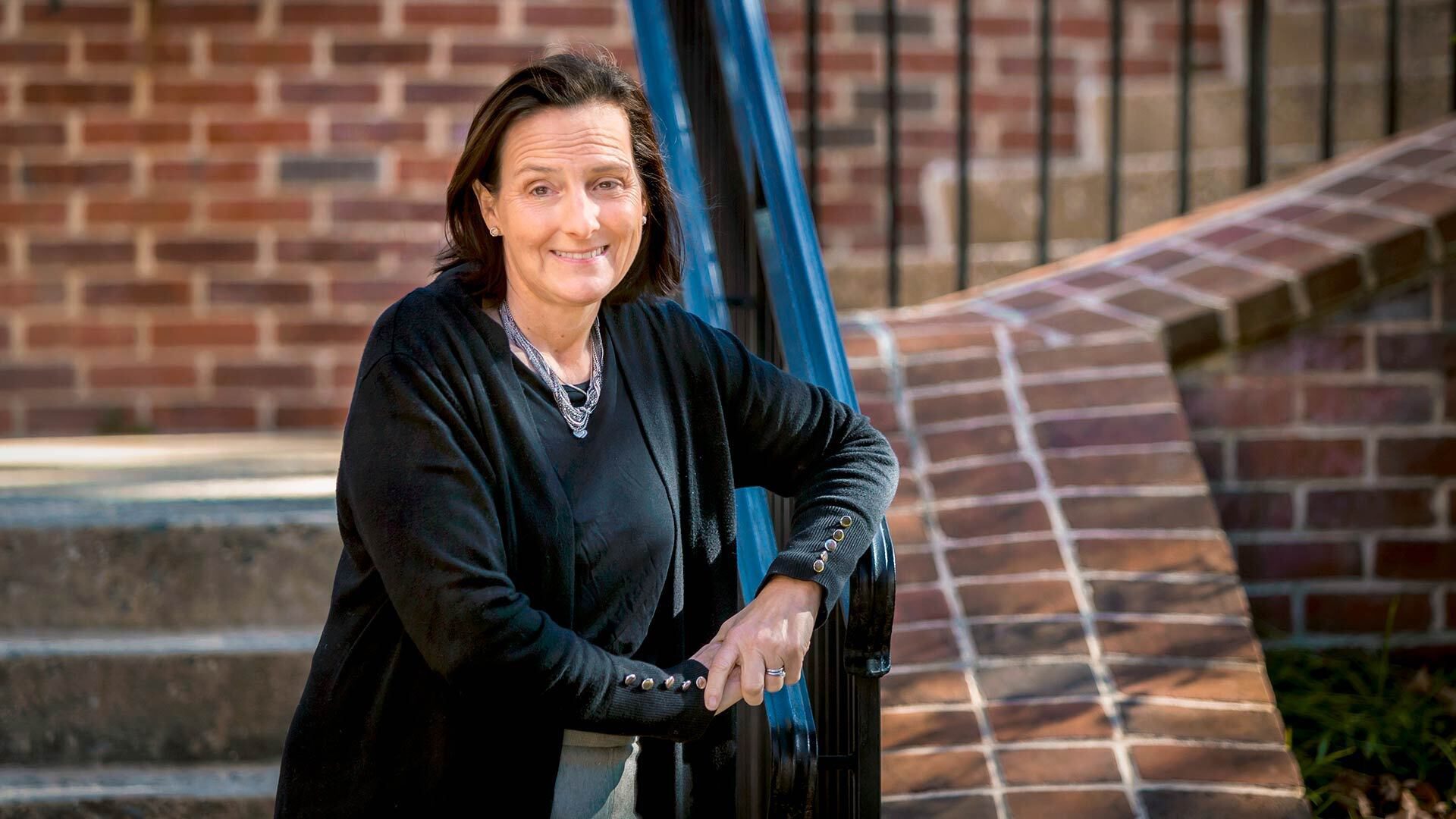- November 22, 2021
- By Chris Carroll
An employee with movement limitations crossing an icy parking lot. A job applicant with a visual impairment applying online. A student with a cognitive disability striving to focus in a big lecture hall.
Each day on a campus that rivals a small city in scope, people with a range of disabling conditions confront the challenge of navigating environments often constructed over the decades without them in mind.
The new University of Maryland staff member who oversees compliance with the Americans with Disabilities Act (ADA) and other disability-related civil rights legislation sees her job as one of continuous, strategic reshaping of this environment toward an ultimate goal: to make going to school or work as convenient for a person with a disability as for one without.
In addition to working on policies and procedures with partners ranging from the Office of Civil Rights and Sexual Misconduct (OCRSM) to Facilities Management and the President’s Committee on Disability Issues, ADA/504 Coordinator Emily Lucio will work to educate the entire university community about access and inclusion. (“504” refers to a section of the Rehabilitation Act of 1973 that covers accommodations for people with disabilities.)
“My overall goal is that this is a welcoming environment for everybody,” said Lucio, who joined the university this semester. “I would rather be doing things proactively, because true equality of opportunity is created by proactive planning, educating and policymaking—more than by reactive accommodation and resolution when there’s a problem.”
So what does “welcoming” actually look like?
Lucio cited events on campus as an example; most people could make a last-minute decision and simply show up, but such extemporaneous scheduling is impossible if you’re deaf or hard of hearing. Outside of major happenings like commencement or big games where accommodations are always available, a request for a sign language interpreter’s presence is required well in advance.
That represents full compliance with laws regarding accessibility, but in another sense, it’s less than equivalent access. “ADA compliance alone does not always result in meaningful inclusion,” Lucio said.
In such cases, there’s a balancing act; the university clearly can’t send interpreters to each of the thousands of events yearly that a deaf person might decide to attend, she acknowledged, but a welcoming campus could institute a system in which interpreters are automatically included at events of a certain size where it’s probable a hearing-impaired person would be present.
Although her job is one that at many institutions is frequently about extinguishing fires, she’s not fighting the current at UMD to work toward proactive accommodations, Lucio said. The university already offers a full range of accommodation services on which to build: Students receive support for academic, mobility and other needs via the Accessibility and Disability Service (ADS) in the UMD Counseling Center, while staff works through University Human Resources and faculty with the Office of Faculty Affairs to develop accommodation plans.
President Darryll J. Pines’ first message to the university when he took office in 2020 included a section on “Creating a Welcoming and Inclusive Campus,” and the elevation of the ADA coordinator position and its movement to the Office of Diversity and Inclusion (ODI) from ADS is an indication of how centrally the role is regarded.
“Disability is not always included in the conversation about diversity,” Lucio said. “(The move to) the Office of Diversity and Inclusion speaks volumes about the university’s commitment to ensuring persons with disabilities are included in that very important overall discussion.”
Creating a standalone position is a key step for the university because as a result, Lucio “is better situated to evaluate the big picture,” said Georgina Dodge, vice president for diversity and inclusion. “Emily will be able to focus on campuswide policy, climate and physical infrastructure to ensure our campus is accessible to all.”
Lucio brings 25 years of experience in ADA compliance to her new role. Raised in what she described as a politically engaged and civic-minded family in Chicago, she earned a bachelor’s degree in public policy from the University of Michigan and a master’s in special education from Eastern Michigan University. She has served as disability services director at Catholic University and the University of Tennessee and as ADA coordinator for the Johns Hopkins University and Montgomery County, Md.
Driven to stay at the forefront of developments in the field, Lucio is unusually well-equipped to understand both student needs and how the laws apply to the whole campus, said Irene Bowen, an attorney and ADA consultant who was deputy chief of the Department of Justice’s Civil Rights Division.
“Her basic approach is to apply a lot of enthusiasm and dedication to what she does,” said Bowen, who has presented educational sessions with Lucio over the years. “She’s always at the cutting edge, always thinking about where society is going—thinking about how the broad issues that affect the general public will affect people with a disability.”
For example, while the two were working together on an emergency planning project a decade ago, Lucio became interested—prophetically, it turned out—in the possibility of a pandemic and how it would affect people with disabilities. She pushed the group to plan for that outcome, Bowen said, including the kind of internet-based education that became the norm during COVID-19.
Whether it’s working with the provost’s office on accessible remote learning or Facilities Management on access to buildings or Residential Facilities on helping disabled students live more comfortably on campus, the opportunity to find ways to go beyond baseline inclusion requirements never ceases to be inspiring, Lucio said.
“There are days when I feel like I’m all over the place, and it might look like chaos in some circles,” she said, “but that’s really what I love about this position—never the same day twice.”
Topics
People